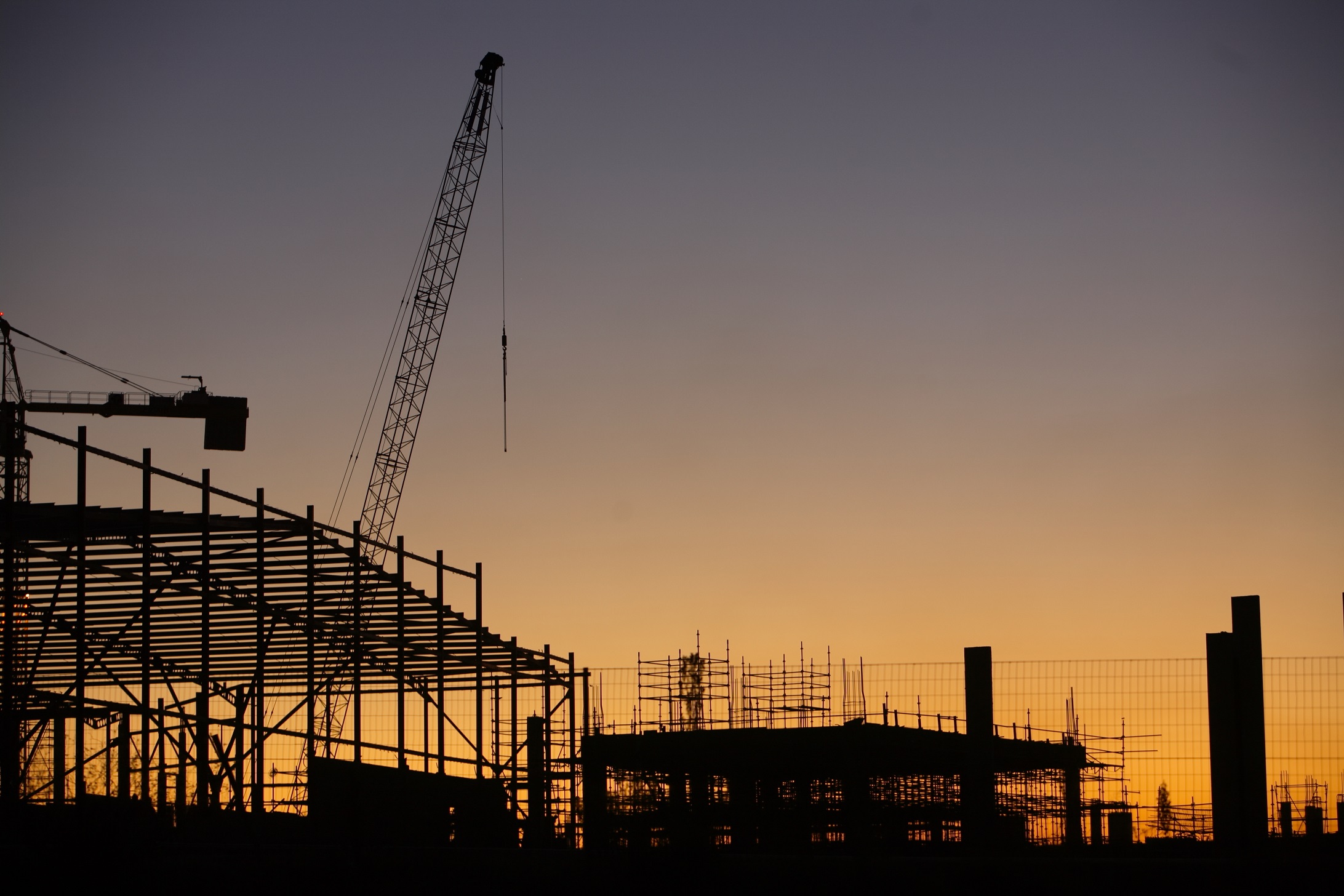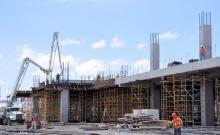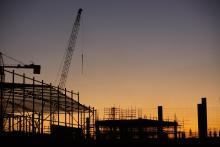
Although construction output in North America is forecast to reach US$1.94 trillion this year, up from US$1.89 trillion in 2021, GlobalData says the recovery is lower than expected following interest rate hikes and rising material prices.
Jack Riddleston, construction analyst at GlobalData, comments: “The North American construction industry remained relatively stable over the course of the pandemic and was the only region to show positive growth in 2020. Growth was supported largely by the rapid expansion in the residential housing sector which made up for contractions in all other sectors. Where other regions grew rapidly in 2021, North America stagnated, growing marginally as a contraction in the US was offset by high growth in Canada.”
GlobalData has cut its 2022 growth forecast for North America from 4.5% down to 2.4%. The considerable downward revision to the forecast was mainly due to the lower-than-expected real output in the US in the first quarter of 2022, which registered a 6.6% year-on-year fall. The US construction industry contracted 1.0% in 2021 and 2.1% in 2022 and has suffered the effects of the poor macroeconomic environment far more than Canada, which is expected to retain much of the growth momentum from 2021 and is forecast to grow 4.0% in 2022.
Inflation has been rampant throughout the North America region, taking a high toll on its construction output with existing supply chain fragilities having been exacerbated by the advent of the war in Ukraine driving up material costs. As a result, the Consumer Price Index (CPI) in the US has risen 8.6% in the past 12 months as of May 2022, sitting at its highest level since 1981.
Riddleston adds: “The surge in material prices and labor shortages are causing significant project cost hikes and delays, reducing funding available for new projects. For example, the initial cost expectation of the Des Moines International Airport terminal expansion was $434 million when it was announced in 2018, however, due to a spike in input costs the project is now set to cost $733 million, and officials are considering staggering the construction of the project to offset the increase in costs.”
In response to high levels of inflation, the Bank of Canada and the Federal Reserve (Fed) have continued on their path to aggressively tighten monetary policy. The Fed has persisted with the third consecutive rate hike in four months, after exceedingly high levels of inflation, raising interest rates from 0.75% to 1.75% on 15th June.
Riddleston comments: “A more hawkish stance taken by the Fed has added to the fear that the US economy will dive into a recession. The increase in the cost of borrowing on top of rising costs and supply chain issues that already ail the economy risk driving down output. The residential construction sector will feel the brunt of the increase in interest rates as the cost of borrowing increases and real incomes are squeezed; the sector has benefited from expansionary monetary policy over the past two years, when mortgage rates were pushed down to new lows, helping to drive up housing demand.”
On the upside, continued investment in infrastructure and energy and utilities construction as public investment programs such as Infrastructure Investment and Jobs Act (IIJA) and continued focus on ‘Net Zero’ targets will drive growth in the sectors that underperformed throughout the pandemic.
Riddleston concludes: “The outlook for North America will improve, as inflationary pressures and supply-chain disruptions will likely subside and federal spending from the IIJA will likely be realized in late 2022 and early 2023. As a result, GlobalData expects the North American construction sector to grow by 3.7% in 2023.”










